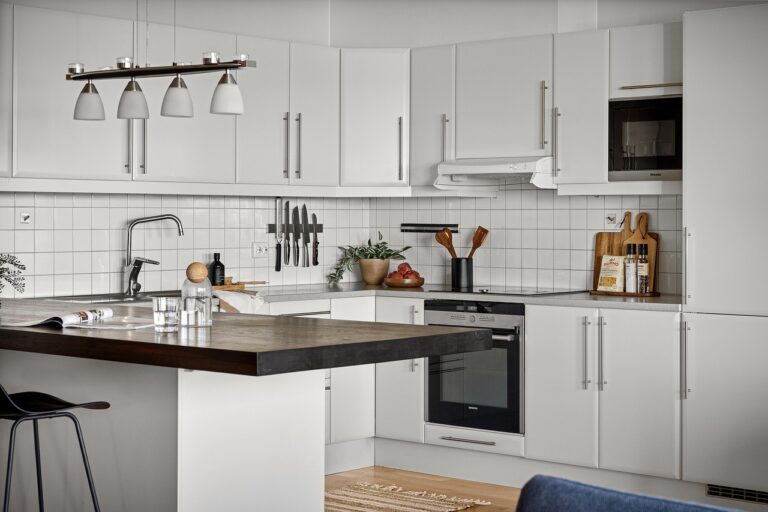Harnessing Solar Power for Sustainable Home Energy Solutions
The use of solar power for home energy solutions has become increasingly popular as individuals and families seek to reduce their carbon footprint and lower their monthly utility bills. By harnessing the sun’s abundant energy through solar panels, households can generate their own electricity, thus reducing their reliance on traditional grid power sources. This not only contributes to a more sustainable environment but also provides homeowners with greater control over their energy consumption.
Additionally, investing in solar power can lead to long-term financial benefits for homeowners. While the initial upfront cost of purchasing and installing solar panels may seem daunting, in the long run, solar energy can significantly lower electricity bills and even potentially generate income through net metering programs. Moreover, as technology advances and the demand for renewable energy grows, the resale value of homes with solar panels is likely to increase, making it a wise investment for the future.
Understanding How Solar Panels Work
Solar panels, also known as photovoltaic (PV) panels, work by harnessing sunlight and converting it into electricity through the photovoltaic effect. Each solar panel consists of multiple solar cells made of semiconducting materials like silicon. When sunlight hits these cells, it excites the electrons in the material, creating an electric current that can be captured and used as power. This process is what allows solar panels to generate clean, renewable energy for homes and businesses.
The electricity produced by solar panels is direct current (DC) electricity, which is then converted into alternating current (AC) electricity using an inverter. AC electricity is the type of electricity used in households to power appliances, electronics, and lighting. The converted electricity can either be used immediately in the home or stored in a battery for later use. Overall, the functioning of solar panels is a simple yet efficient way to generate sustainable energy and reduce reliance on traditional fossil fuels.
Choosing the Right Solar Panel System for Your Home
When selecting the appropriate solar panel system for your home, it is crucial to consider your energy needs and available roof space. Assessing your household’s energy consumption and the size of your roof will help determine the optimal system size to meet your requirements. Additionally, take into account factors such as the orientation of your roof and the amount of sunlight it receives throughout the day.
Another key aspect to consider when choosing a solar panel system for your home is the type of solar panels that will best suit your needs. There are various options available in the market, including monocrystalline, polycrystalline, and thin-film panels. Each type has its own set of advantages and considerations, so it is essential to research and compare their efficiency, performance, and cost before making a decision.
• Monocrystalline solar panels are known for their high efficiency and sleek design
• Polycrystalline solar panels are more affordable but slightly less efficient than monocrystalline panels
• Thin-film solar panels are lightweight and flexible, making them ideal for certain installation locations such as curved roofs or portable systems
In addition to considering the type of solar panels, it is important to think about the warranty and durability of the system. Look for reputable manufacturers that offer solid warranties on their products to ensure long-term performance and peace of mind. Consider factors such as degradation rate, temperature coefficient, and product lifespan when evaluating different options.
Furthermore, don’t forget to take into account any available incentives or rebates offered by your state or local government for installing a solar panel system. These financial incentives can help offset the initial cost of installation and make renewable energy more accessible for homeowners. Research what programs are available in your area and factor them into your decision-making process.
Lastly, consult with a professional solar installer to assess your home’s specific needs and receive personalized recommendations. An experienced installer can provide valuable insights on system sizing, placement, maintenance requirements, and potential savings over time. By working with a trusted expert, you can ensure that you choose the right solar panel system for your home that will meet your energy goals efficiently.
What are the benefits of using solar power for home energy solutions?
Solar power is a renewable energy source that can help reduce electricity bills, lower carbon footprint, increase property value, and provide energy independence.
How do solar panels work?
Solar panels absorb sunlight and convert it into electricity through photovoltaic cells. The electricity generated can be used to power household appliances and lighting.
How can I choose the right solar panel system for my home?
To choose the right solar panel system, consider factors such as your energy needs, roof space, budget, and local weather conditions. It’s also important to research different types of solar panels and installation companies before making a decision.
How much does a solar panel system cost?
The cost of a solar panel system can vary depending on the size of the system, quality of the panels, installation costs, and available incentives or rebates. On average, a residential solar panel system can cost between $10,000 to $30,000.
Will a solar panel system work during cloudy days or at night?
While solar panels are most efficient in direct sunlight, they can still generate electricity on cloudy days. Additionally, excess electricity generated during the day can be stored in batteries for use at night.







